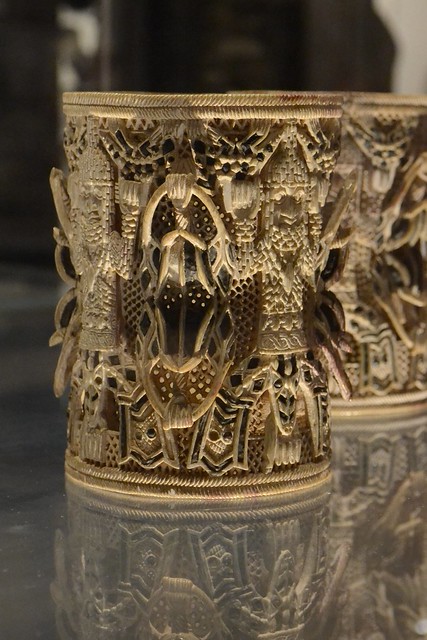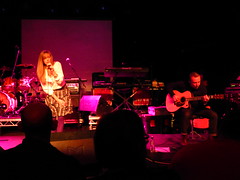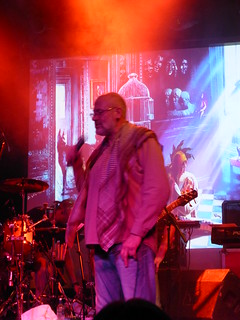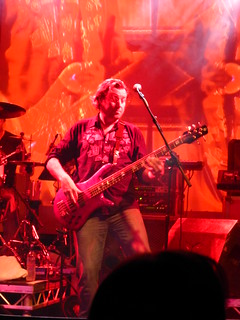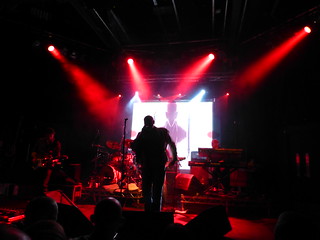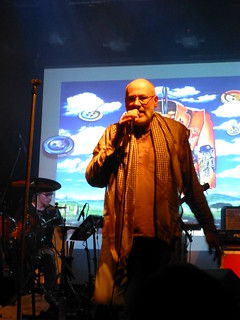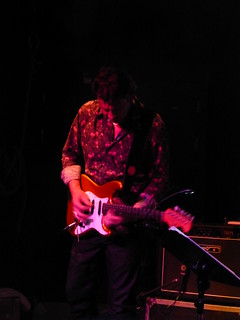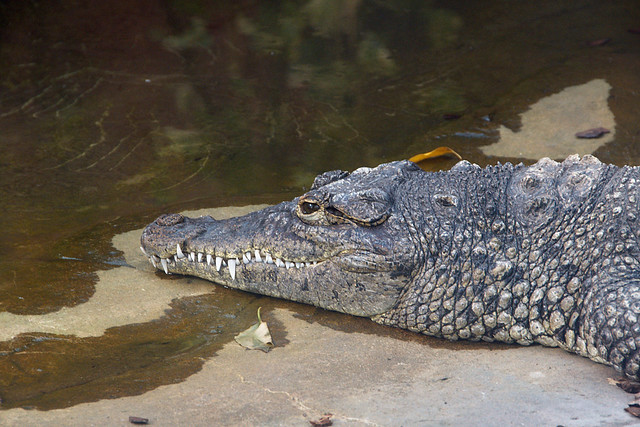The book opens with Em in a cell, obsessed with & terrified by the drain in the floor and plotting her & her fellow prisoner’s escape. Her discovery of a note in her own handwriting in the drain – a note she knows she hasn’t written – leads to their success. And the two use their captor’s time machine to head back to 4 years earlier to try & stop the seemingly inevitable chain of events that lead to that cell. The other main point of view is Marina – who starts the book seemingly a shallow, sheltered, spoilt teenage girl obsessed with her looks & the boy next door. Thankfully it quickly becomes clear that not only is that not really an accurate description but also her character arc involves growing out of appearing that way.
Again I picked this up from the library after a review on Tor.com – this time the reviewer had mentioned that she didn’t normally read YA but was glad she’d accidentally read this one. So I still read it even after the disappointment of Gwenda Bond’s The Woken Gods (post) which I’d partly chalked up to it being YA and me not being the target audience, and I’m glad I did read it. Having just read & written up my impressions of Bond’s book something that was very striking about this book was how it felt like the world did exist outside of where the characters & author were focusing on. And Marina in particular has a very naive world view, yet as the reader you see more than she does. The characters feel real, and you get to see enough of their environment & backstory for it to feel like their relationships & attitudes come from their upbringing & their basic personality. In particular I re-read the very first Marina chapter while I was writing the first paragraph of this review, and I was struck by all the little details about Marina & her friends & family. I was left with a sensation that of course this girl acted like that then, just look how she lived & how people treated her.
Being a time travel novel, the plot is like a jigsaw puzzle or an intricate piece of knotwork. I think Cristin Terrill did a good job of setting up the revelations so that you began to realise who someone was or what the cause of an event was just enough before the reveal that it felt right. A few things were hidden by clever word choice or by not naming someone, but generally those were lampshaded reasonably well – like a little conversation between Finn & Em about how she can’t bring herself to use the antagonist’s real name any more. I mean, it’s obvious it’s there to keep some doubt going about who it is in the earlier timeline, but I was willing to accept it for long enough for it to do its job. Terrill also manages to pull off telling us how the loop & the plot will be resolved right near the beginning – the note says “you have to kill him”. But there’s still tension. And even tho you know how it will inevitably end, you don’t know how it will end – what the details are, how it will play out.
There’s a lot of underlying stuff about consequences in the book – kinda obviously as it’s a time travel story. But this also feeds into one of the themes – do the ends justify the means? If you “know” that killing someone will prevent a lot of other deaths, should you do it? Even before they did the things they did? The antagonist is definitely someone who believes that the ends justify the means, but isn’t Em too? And unintended consequences abound – the antagonist is trying to fix things, make the world a better place, but the cumulative effect of his fixes make the world overall a worse place even as the specific things don’t happen.
It’s not flawless – no book is. I had a niggling feeling that not really enough time had passed between the two time periods for people to’ve changed the way they did, but that Terrill had wanted to keep Em & Finn young adults so 4 years was all we got. I also have a niggling feeling that if I poked at the plot enough I’d find other paradoxes (not just the one that’s lampshaded in the text as the way time travel works), but the strength of the book is that I don’t want to follow up on that niggle.
A good book. It ends in a satisfying place, but I believe Terrill is writing a sequel – presumably working out the unintended consequences of the end of this one 🙂
